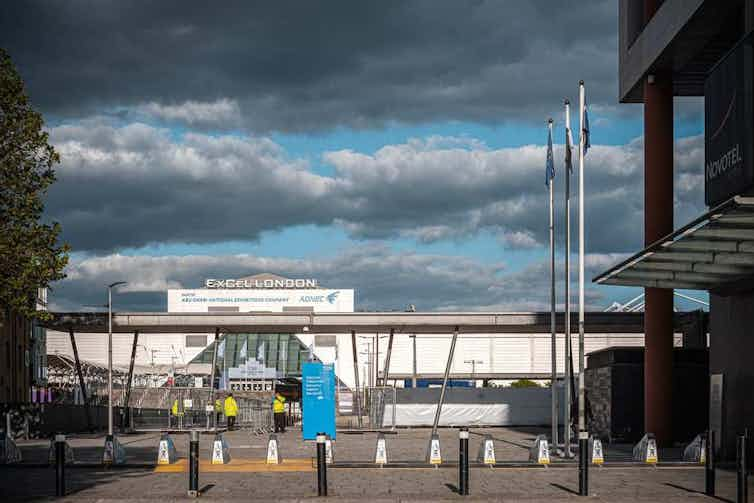The number of Covid-19 patients admitted to hospital in the UK per day is growing, with pressure growing on staff and facilities. The continuing increase in admissions is partly blamed on the newly discovered variant of the virus.
Typically, this time of the year sees around 1,000 admissions a day for respiratory illnesses. However, this figure has doubled due to the number of Covid-19 cases alone.
Clinical research director Professor Christina Pagel of University College London has called the situation “alarming.”
With the NHS coming under increasing pressure, questions have been raised about why the Nightingale hospitals aren't open.
Tory MP John Redwood has been vocal in calling on them to reopen to manage the situation.
There are seven Nightingale hospitals across England. Other field hospitals have also been built in Scotland, Northern Ireland, and Wales, but do not operate under the “Nightingale” name.
Currently, only two of these field hospitals, including Nightingale hospitals, are being used for Covid-19 patients across the UK, in Exeter and Belfast. The Nightingale hospital in Manchester is being used to treat non-Covid patients who are nearing the end of their recovery. Diagnostic testing is currently taking place at the Nightingale hospital in Harrogate and Glasgow's field hospital.
Dr Chaand Nagpaul, leader of the British Medical Association, says the issue is down to staff numbers.
Rupert Pearse, an East London intensive care doctor, told the BBC, "We are already 'diluting' our skilled ICU nursing staff with less-well-trained volunteers."
Managing the demand in NHS hospitals has involved prioritising specific treatments and appointments over others, meaning work that is deemed “routine” has often been cancelled. These include hip and knee replacements. Taking these actions have allowed the NHS to just about cope with the demand.
The concern is that this is not a long-term solution. The Nightingale hospitals are also reported not to have the necessary facilities to treat Covid-19 admissions properly. A doctor who worked at one of the Nightingale hospitals during the first wave of the pandemic told the BBC, "We can give them oxygen, but that's about it."
"In some there are not even appropriate toilet facilities. They were built in a rush because we were desperate."
Despite their lack of facilities and the fact they are not being used, Chris Hopson of NHS Providers, representing hospital trusts, says it was still the right decision to build them. Referring to Italian Hospitals in Lombardy becoming overwhelmed, he said, "We needed an insurance policy in case that happened."
He went on to say, "If we don't end up using them, we should think of that as a success.”






